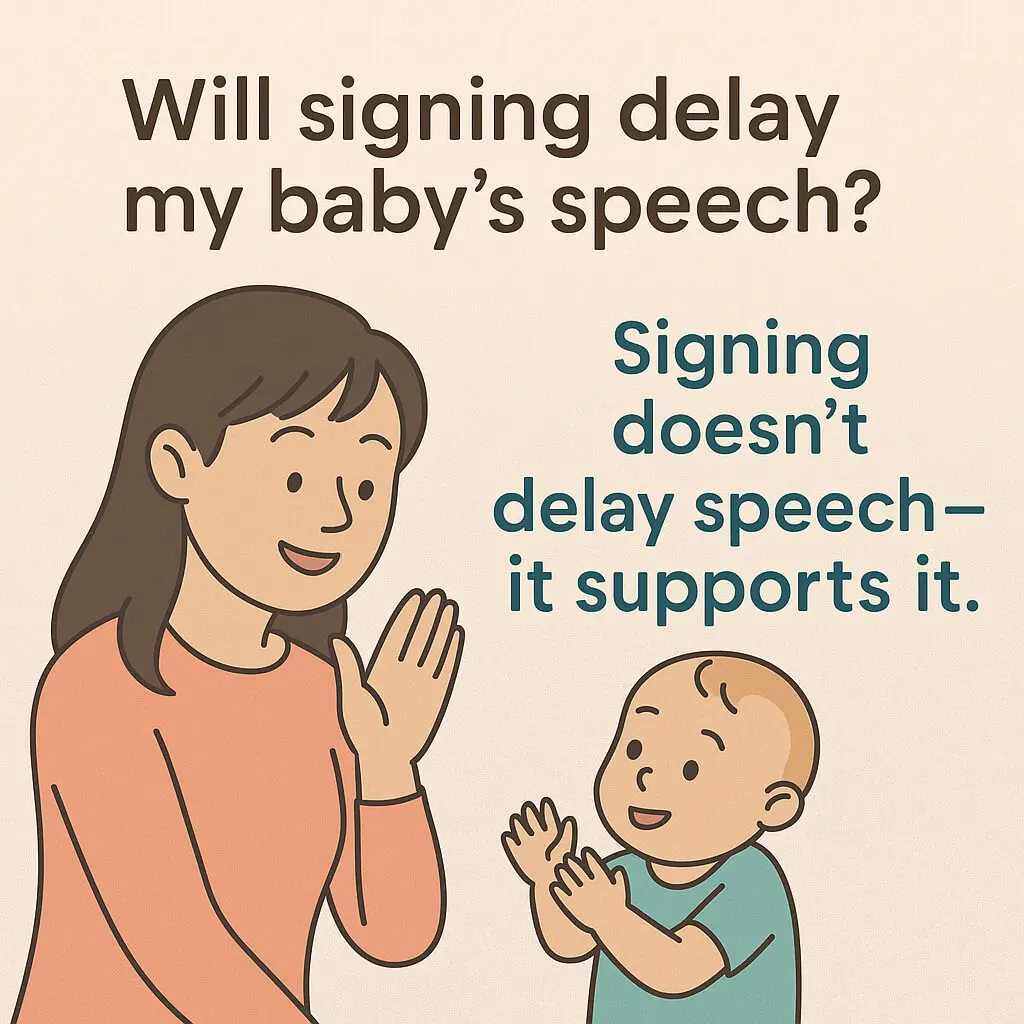
Mythbusting: Will Signing Delay My Baby’s Speech?
One of the most common questions we hear from parents considering baby sign language is:
“If I teach my baby to sign, will it delay their speech?”
It’s an understandable concern—and it’s also one of the biggest myths about baby signing.
The truth?
🖐️ Signing does not delay speech. In fact, it often supports and accelerates it.
Let’s take a closer look at the research, the reality, and how signing can actually help your baby become a confident communicator.
🚫 The Myth: Babies Who Sign Talk Later
Some parents worry that if a baby can get their needs met by signing, they might skip or delay spoken words. It seems logical—if your baby signs “milk,” why would they bother saying it?
But developmental science tells us the opposite.
✅ The Facts: Signing Supports Speech Development
Decades of research, including groundbreaking studies by Baby Signs® founders Drs. Linda Acredolo and Susan Goodwyn, show that signing:
-
Helps babies learn that words represent ideas
-
Increases verbal comprehension
-
Builds vocabulary faster
-
Boosts confidence in communication
-
Encourages spoken words to emerge sooner—not later
In fact, one long-term study funded by the National Institutes of Health found that babies who used signs as infants scored higher on IQ tests at age 8 compared to their non-signing peers.
👶 Why Signing Works with Speech
Here’s why signs work hand-in-hand with spoken language:
-
Repetition with visual support: When you say the word “more” and sign it at the same time, your baby hears it, sees it, and experiences it in context. That multi-sensory reinforcement makes the word stick.
-
Reduces frustration: Signing allows babies to express their needs before they can form words, making communication smoother and more positive. Happy, successful communication encourages more attempts at speech.
-
Bridges the gap: Most babies begin understanding words months before they can say them. Signing helps them “talk” during this in-between stage.
🗣️ Real-Life Progression
A typical pattern looks like this:
-
Sign only (e.g., signs “milk”)
-
Sign + Sound (e.g., signs “milk” and says “mmm”)
-
Word only (e.g., says “milk” without signing)
-
Phrase/sentence (e.g., says “want milk”)
Eventually, speech takes over—but the boost in early communication sticks.
💬 Parent Tip
Keep talking while you sign!
Your voice is your child’s favorite sound, and pairing signs with speech reinforces both skills.
🎉 The Bottom Line
Far from delaying speech, baby sign language gives your child a powerful head start. It builds confidence, reduces frustration, and helps them connect meaning to language long before their first spoken words.
So go ahead—sign away! You’re not replacing speech; you’re laying the foundation for it.
📚 Ready to Start Signing?
Check out these helpful tools:
-
🖐️ Quick Reference Guide – 67 core signs to use every day
-
📘 Circle Time Book Collections – storybooks that build vocabulary through signs
-
👩🏫 Find a Class Near You – learn from a certified Baby Signs® instructor
-
🧠 Want to teach others? Become a Baby Signs® Instructor
